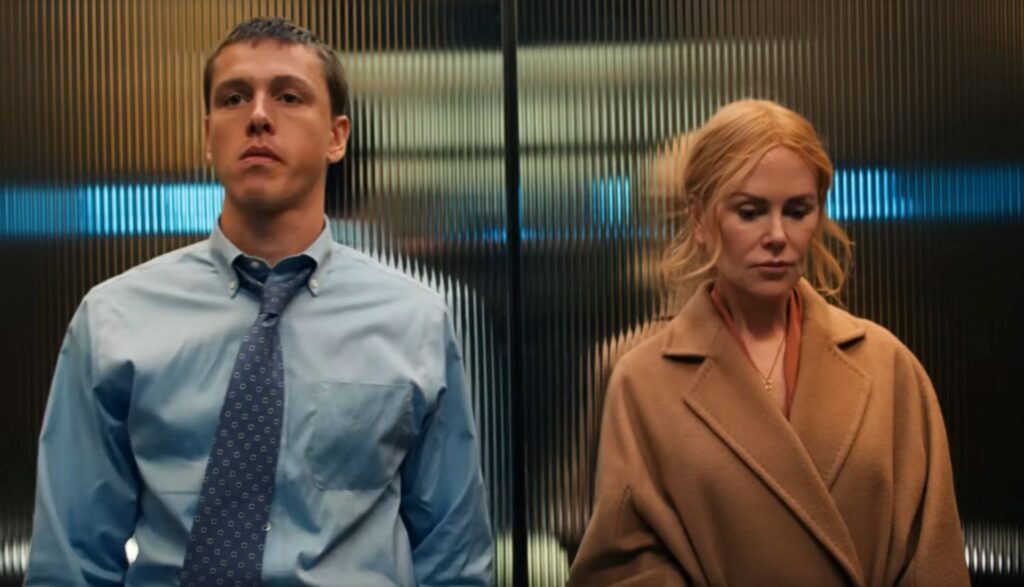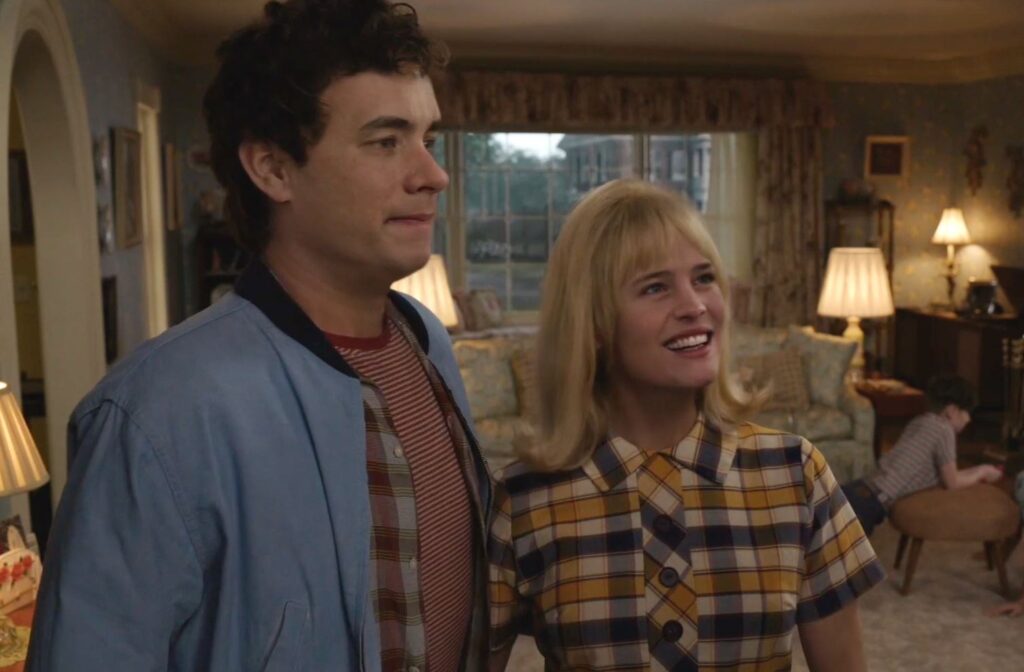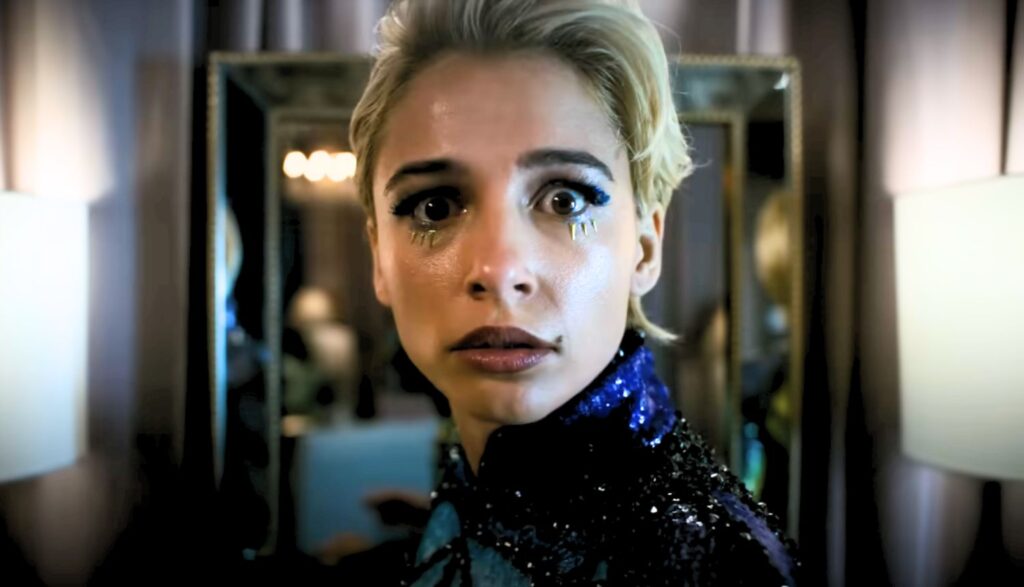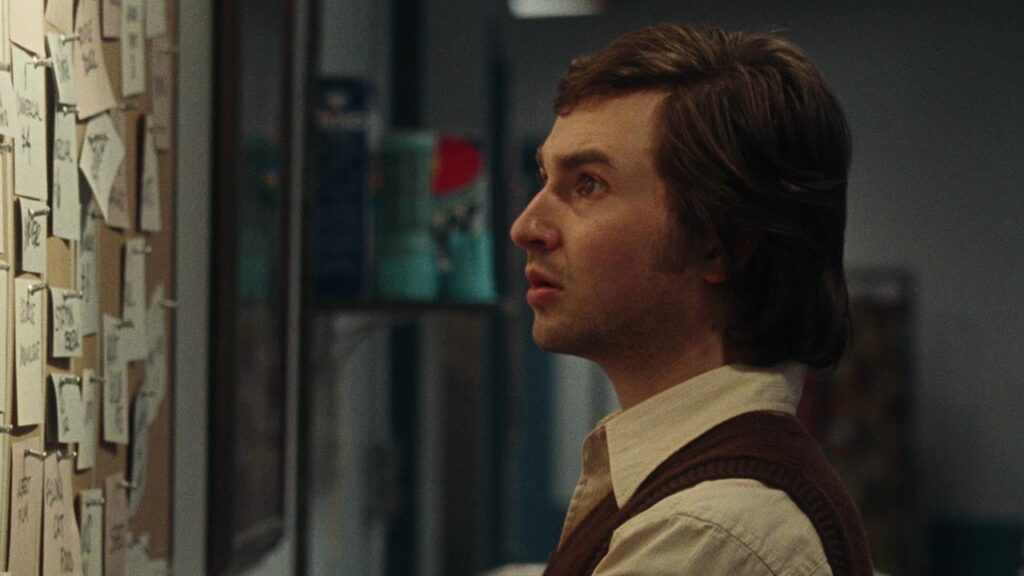Better Man: Diary of a Chimpy Kid
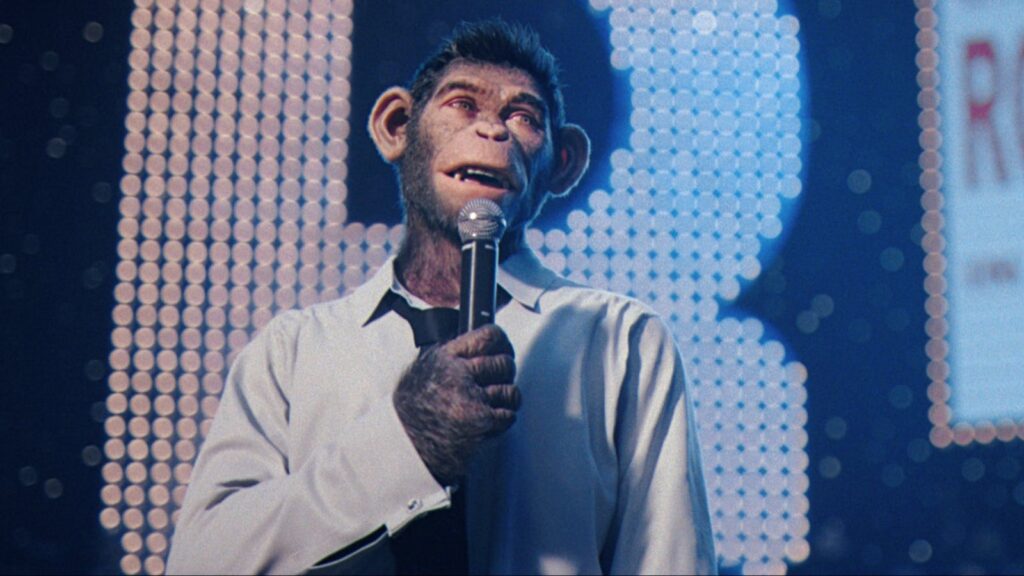
The story of an artist’s rise and fall and rise again, Better Man is in many ways a thoroughly typical picture. Like most musical biopics, it conforms to a three-act structure, dutifully following its hero’s rags-to-riches trajectory while interspersing boisterous performances of the songs that made them famous. Like most musical biopics, it juxtaposes euphoric highs (the thrill of nailing an audition, the joy of climbing the charts) with crippling lows (drug abuse, daddy issues). And like most musical biopics, it aims to provide a three-dimensional portrait of its subject while still ultimately lionizing them. In fact, Better Man is like most musical biopics in virtually every way. Except one.
I generally try to go into movies as cold as possible, but I’m wondering how a truly oblivious ticket-buyer might feel upon randomly selecting a screening of Better Man, settling in for the opening voiceover (in which its protagonist declares that he’s been called “narcissistic” and “punchable”), and then watching as the camera focuses on… a monkey. Not an actual monkey—a computer-generated chimpanzee who otherwise walks, talks, and behaves like a human, to the point where nobody remarks on his biological dissimilarity. Even the kids in Paddington acknowledge that they live with a bear. All of the characters here are either extraordinarily tolerant or exceedingly near-sighted. Read More

